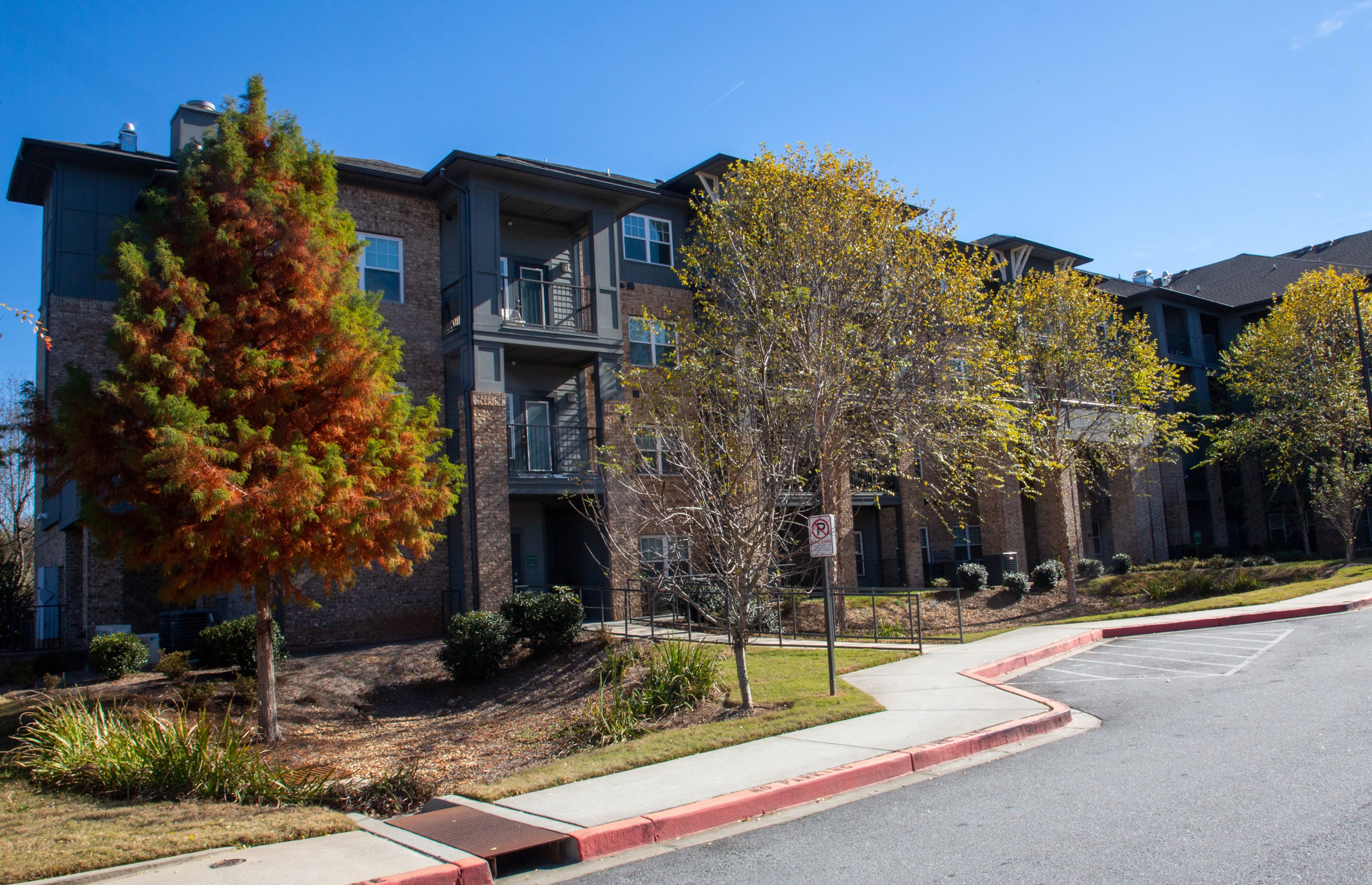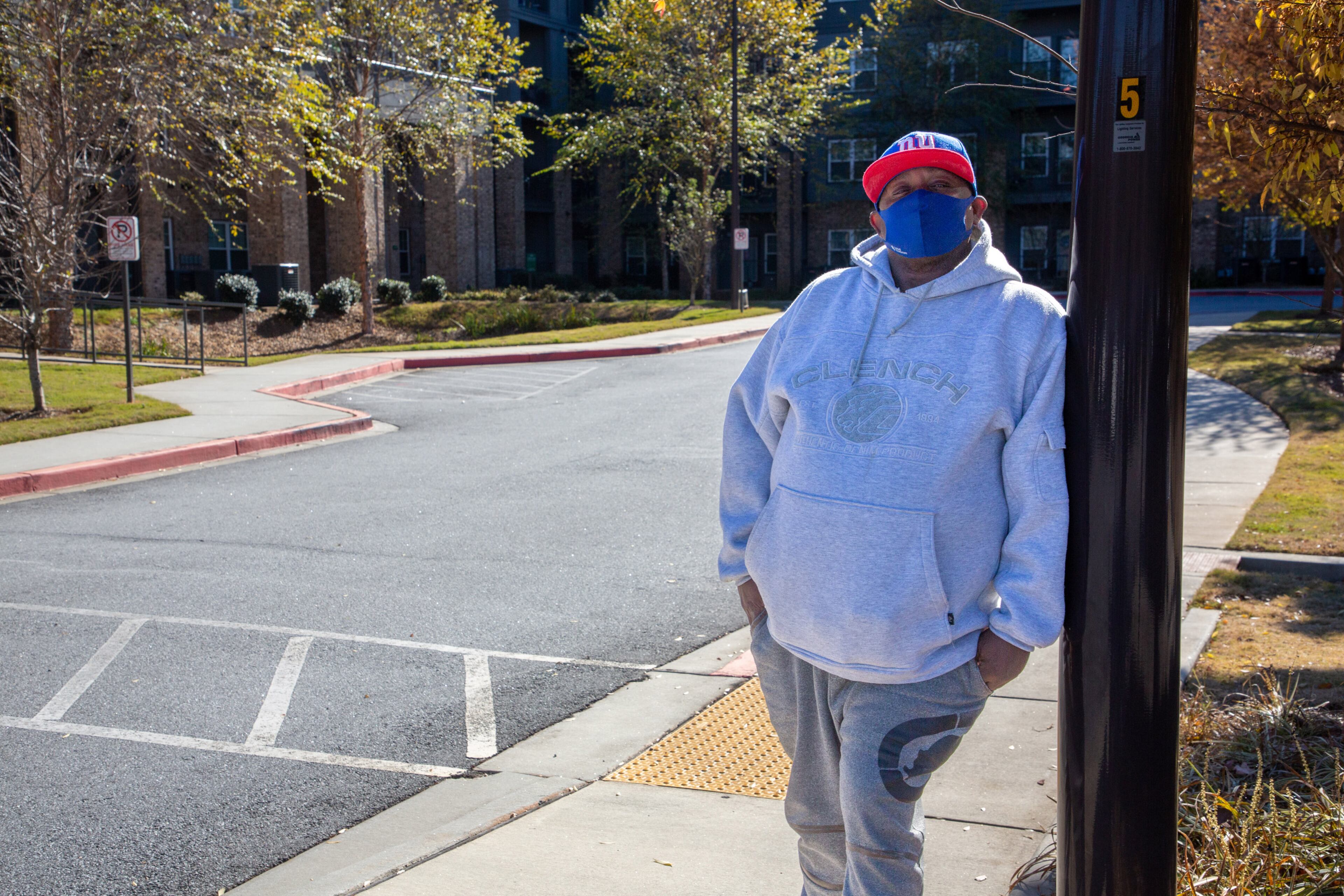Developers say DeKalb is over-taxing affordable housing projects

Before he found an apartment at Manor at Indian Creek, Kenneth Walker was in a homeless shelter.
An EMT from New York who was injured on 9/11, he’d been in Mississippi with family for a while before joining an old friend in Georgia. That didn’t work out as expected and, with a limited income, he found himself at the Atlanta Mission.
After several months, Walker says, he was alerted to a new apartment complex that was opening up in DeKalb County, right outside I-285 and a short walk from the Indian Creek MARTA station. It was nice, modern — with a gym, a community garden and a theater.
Most importantly, it was affordable.
“This place is a blessing,” Walker, 58, said recently, sitting on a chair in the complex’s library and reading room.
He’s now lived there for nearly four years.
Developers, though, say that places like Manor at Indian Creek face a new threat from some local tax assessors — even as the demand for affordable housing options continues to soar.
Manor at Indian Creek is one of hundreds of developments across Georgia whose construction was funded in part through the Low-Income Housing Tax Credit program, a federal initiative started in the mid-1980s. The state has had its own complementary program, run through the Department of Community Affairs, for three decades.
LIHTC (pronounced “lie-tech”) is the largest affordable housing program in the state, and not a perfect one; there are good operators and bad ones. But the goal is to create what’s commonly referred to as workforce housing: nice, safe communities where teachers or first responders or seniors on fixed incomes can afford to live.
Residents within the designated threshold of an area’s median income may pay $700 or $800 a month for apartments that could otherwise go for twice that.

The model works, developers say, because the LIHTC program offsets some of the debt necessary to fund construction. That makes it possible to build good projects while keeping rents low.
But they also say tax assessors in DeKalb County — and at least a few other jurisdictions — are threatening the balance through unnecessarily high valuations on new construction projects, which in turn lead to property tax bills that exceed their cash flow.
In 2019, for example, Manor at Indian Creek got a bill of nearly $250,000 from DeKalb County. A similar project in neighboring Fulton County received a bill of just $37,000.
Ken Blankenship was a founding partner of Prestwick Development, which built both of those LIHTC properties and others across metro Atlanta. He’s also a board member of the Georgia Affordable Housing Coalition, a trade association for developers.
“These counties want more affordable housing,” Blankenship said. “It’s in their blood to push for and fight for more affordable housing. But once they get it, they want to take as much as possible.”
Another developer, Dave Dixon, called the situation “a crisis for all of us.”
“They’re not feasible to operate at these tax levels,” he said. “And investors, lenders are going to say well, since it’s not feasible to operate, I’m not gonna put the capital in.
DeKalb County’s chief appraiser, meanwhile, said those concerns are nonsense.
LIHTC developers make plenty of money, Calvin Hicks said, and their properties should be taxed the same as any market rate project.
“If these things were so poor an investment vehicle, if these things were so terribly, terribly bad,” Hicks said, “why do we have so many people entering the lotteries saying, ‘I want that’?”
The Georgia Court of Appeals could weigh in on the dispute soon.
‘Have its cake and eat it too’
It gets complicated and, frankly, more than a little murky.
But in essence, LIHTC programs offer tax credits to developers interested in building more affordable housing. Developers then sell those credits to private investors, lessening the amount of debt they need to take on for projects.
In return, the developers agree to build market rate-quality complexes while keeping rents low for at least 30 years. It’s a highly competitive program that, since 2001, has helped build more than 136,000 LIHTC units across Georgia.
Legal wrangling over how such projects are valued — and subsequently taxed — has been commonplace.
In 2019, a case out of Valdosta made it all the way to Georgia’s Supreme Court. The court ruled that county assessors determining a LIHTC property’s fair market value could not count the tax credits that developers receive as “actual income.”
Georgia Supreme Court Decision, 2019 by Tyler Estep on Scribd
Developers cheered the decision. But it also left plenty open to interpretation.
DeKalb assessors subsequently ditched the “income approach” when valuing LIHTC properties altogether. They now use an appraisal method based on the total cost of construction.
Because the low-income properties are, by law, built to the same specifications as market-rate projects, they get matching tax bills, too.
Former state Rep. Brett Harrell, who championed pro-LIHTC legislation as chair of the House Ways and Means Committee, called the approach a “short-sighted” attempt to generate more revenue.
But in an ongoing legal case involving a LIHTC property in Lithonia, attorneys representing DeKalb County said it was more than fair. They accused developer Bainbridge Limited of wanting “to have its cake and eat it, too.”
“Although Bainbridge spent over $14 million to develop Granite Crossing, a brand new apartment complex stocked with modern furnishes and amenities, it claims the property is worth less than $4 million,” county attorneys wrote in one court filing.
“Why? Because Bainbridge voluntarily agreed to lease its apartments at below-market rents, an admittedly laudable effort. But Bainbridge only agreed to below-market rents because the state and federal governments gave it nearly $12 million in tax credits.”
Hicks, the county’s chief appraiser, said he’s trying “to be fair and equitable, to be uniform to everyone.”
Former Georgia Gov. Roy Barnes, an attorney who has represented LIHTC developers in high-profile cases, called the situation “nuts.”
“I just don’t understand it,” he said. “It’s like it’s become personal with these tax assessors.”

The legal case involving Bainbridge Limited is currently awaiting a judge’s ruling in the Georgia Court of Appeals.
A decision could come down soon but, with further legal action still an option for both sides, it seems unlikely the issue will be cleanly resolved in the near future.
Developers and attorneys said the disagreement could be addressed administratively, with the state Department of Revenue issuing more guidance about how local assessors should treat LIHTC properties. Legislative fixes are also possible, but would perhaps have to involve a change to the state constitution.
“Quite frankly it gets to the point where, listen, if you guys can get the Legislature to change it and exempt them all, so be it,” Hicks, the DeKalb appraiser, said. “Because I’m tired of fighting.”
Ken Blankenship is too.
The developer who helped build Manor at Indian Creek and other LIHTC properties in metro Atlanta is in the process of launching a new firm. It will still build affordable housing, he said.
But not in DeKalb County.
“I’m only looking in areas where I know I don’t have to fight the county on property assessments,” Blankenship said.
BY THE NUMBERS
The federal Low-Income Housing Tax Credit (LIHTC) program provides tax credits to developers in exchange for building or rehabbing multifamily units with affordable rents for at least 30 years. Georgia has a matching program.
136,000: Number of affordable apartments provided in Georgia since 2001
180-200: Number of applications from developers reviewed each year
100-120: New LIHTC projects approved each year
60%: Percentage of area median income residents must fall under to qualify
Source: 2020 Georgia Department of Community Affairs report



